The Codicology and Palaeography of Early Qur'an Manuscripts
14 May 2015, University of Cambridge, Cambridge, UK
Speakers
François Déroche
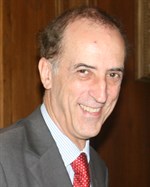
François Déroche is currently a professor at the Collège de France in Paris, where he teaches the history of the Qur’an. He is a specialist of Arabic manuscripts with a special interest in the history of the written transmission of the Qur’an. He was a member of the staff of the Bibliothèque nationale, and then of the French Institute in Istanbul, before joining the École pratique des hautes études. He has published on codicology (with other contributors, Islamic Codicology: An Introduction to the Study of Manuscripts in Arabic Script, 2006) and early Qur’anic manuscripts (La transmission écrite du Coran dans les débuts de l’islam. Le codex Parisino-petropolitanus, 2009; Qur’ans of the Umayyads, 2014).
Eléonore Cellard
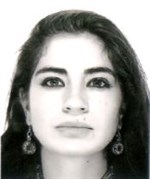
Eléonore Cellard is a doctoral student in civilisation and Arabic codicology at Institut national des langues et civilisations orientales/École pratique des hautes études (INALCO/EPHE) in Paris. During studying for her master’s degree in Arabic language at INALCO, she had the opportunity to attend François Déroche’s seminar about palaeography and codicology of Arabic manuscripts. She later obtained state funding for her doctoral project at INALCO, titled ‘The written transmission of the Qur’an: Study of a corpus of manuscripts probably from the second century AH/ eighth century CE’. Between 2011 and 2014, she was involved in the Franco-German project Coranica, working on the edition of the most ancient fragments of the Qur’an. As part of this project, she presented her research at the event ‘Les Origines du Coran, le Coran des Origines’ in the French Academy (March 2011) and organised a workshop, Manuscripta Coranica, in Paris (October 2012). Since 2015, she is cooperating in the new Franco-German project Paleocoran. She will soon defend her doctoral dissertation.
Umberto Bongianino
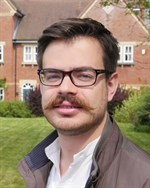
Umberto Bongianino is a doctoral student in Islamic art and archaeology at the University of Oxford. His research interests revolve around the material culture of the Islamic Mediterranean in the mediaeval period, especially Islamic and Norman Sicily, Fatimid Egypt and its ceramic production, Zirid Tunisia, al-Andalus, and the Muslim West. He is currently working on a thesis about the arts of the book in early Muslim Spain and Morocco and the development of Maghribi round scripts between the 4th/10th and the 6th/12th centuries.
Caroline Checkley-Scott
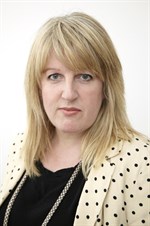
Caroline Checkley-Scott is currently collection care manager at the University of Manchester Library, also co-managing the Centre of Heritage Imaging and Collection Care (CHICC). She has held posts at both the British Library and Wellcome Library. She has acted as chair of the Book and Paper Group for the Institute of Conservation (ICON). Her research interests include the conservation of early manuscripts from the Middle East, particularly the Syriac book and the science of parchment. She teaches conservation and book history both nationally and internationally.
Dr Sarah Fiddyment
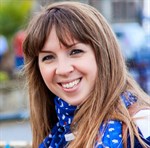
Dr Sarah Fiddyment received her bachelor’s of science degree in biochemistry from the University of Zaragoza (Spain) in 2006, having completed three years of medical school and a two years specialisation in biochemistry. Her master’s of science and subsequent doctorate (awarded in 2011) were completed at the same university, working in the field of proteomics in cardiovascular research. She moved to the University of York after being awarded a Marie Curie postdoctoral research fellowship to focus on the proteomic analysis of parchments throughout history and is currently aBritish Academy Postdoctoral Fellow at BioArCh (Department of Archaeology).
Cheryl Porter

Cheryl Porter is a practicing conservator and manager of a number of conservation and preservation projects. These include twenty-five years as director of the Montefiascone Library Conservation Project in Montefiascone, Italy; five years’ work in Cairo, Egypt for the Thesaurus Islamicus Foundation and Daral-Kutub Manuscript Project; and teaching and advising the conservation department at the Bibliotheca Alexandrina. This work has involved the introduction and implementation of conservation and preservation strategies and practices conforming to international standards. She is an experienced lecturer and teacher of workshops and has published widely, especially on pigments.
Marco di Bella
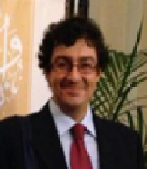
Marco di Bella is a manuscript and book conservator based in Palermo, Italy. He graduated from the European Course for Conservators-Restorers of Book Materials in Spoleto, Italy in 2001. The same year he worked on conservation and survey projects in Dubrovnik, Croatia for the National Trust for Croatian Monuments, and in 2003 he joined Camberwell College of Arts’ conservation project at St Catherine’s Monastery in Sinai, Egypt. He was a book conservator and consultant for the Yemeni Social Fund for development in Sanaa, Yemen from 2004 to 2007; for the Thesaurus Islamicus Foundation and Dar al-Kutub Manuscript Conservation Project in Cairo, Egypt from 2006 to 2013; for the National Archive in Tripoli, Libya in 2010; and for the Hiob Ludolf Center for Ethiopian Studies at the University of Hamburg and the Ethio-SPARE Project from 2011 to 2014. Since 2005, he has worked as a consultant for UNESCO and taught several training courses in book conservation in Yemen, Uzbekistan, and Iraq; and since 2007, he has been employed as book conservation tutor by the University of Palermo. He has worked for several private book conservation studios in Italy and has lectured and published on the archaeology of early Islamic bookbinding and book conservation.
Yasmin Faghihi

Yasmin graduated with a master’s degree in Middle Eastern studies from the University of Manchester and holds a diploma in information management. Since 2014, Yasmin is the head of the Near and Middle Eastern Department at Cambridge University Library (CUL), where she is in charge of printed and manuscript material in the original, modern, and ancient languages of the Near and Middle East, and parts of Africa and Central Asia, and of archives relating to the academic study of the region. For the past six years, her work has increasingly involved facilitating access to collections and collaborating with affiliated projects and institutions and taking a proactive role in fostering digitisation projects and the creation of digital content. Cambridge University Digital Library, the platform for publishing digital content greatly benefitted from the experience of a joint project with the Bodleian Library (Oxford) on the creation of FIHRIST, the online catalogue of Islamic manuscripts in the UK. Academic engagement and outreach work are integral to Yasmin’s work with the Near and Middle Eastern Collections and CUL.
Alasdair Watson
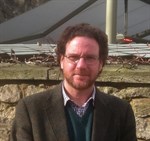
Alasdair Watson is Bahari Curator at the Bodleian Libraries with responsibility for Middle Eastern and Islamic manuscripts. He is also a Wellcome Research Fellow for the History of Medicine at the Oriental Institute, Oxford. Alasdair’s current research includes the Qur’anic manuscripts of Tipu Sultan, 9th–10th century Islamic codicology, and the philosopherphysicians of Iraq and Iran in the 9th–13th centuries.
Dr Keith Small
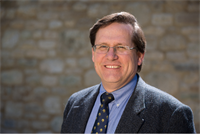
Dr Keith Small is a manuscript consultant to the Bodleian Library at the University of Oxford for its Qur’anic manuscript collection. He also leads the panel devoted to Qur’anic manuscript studies at the International Qur'anic Studies Association’s annual conference in the program unit ‘The Qur’an: Manuscripts and Material Culture’. Dr Small has presented his research at academic conferences in Europe and the USA. His book Qur’ans: Books of Divine Encounter is to be published by Bodleian Library Publishing in July 2015. His book Textual Criticism and Qur'an Manuscripts was published by Lexington Books in April 2011.
Alba Fedeli
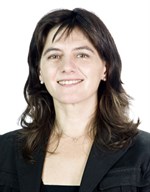
Alba Fedeli is an academic assistant at the Biblioteca Ambrosiana in Milan. She obtained a doctorate in theology and religion from the University of Birmingham, where she received an ARC scholarship to undertake her doctoral research on the Qur’anic manuscripts of the Mingana Collection using the tools of digital philology. Fedeli taught at the University of Milan from 2004 to 2012 and was director of the Ferni Noja Noseda Foundation from 2004 to 2008. She has been involved in various projects on Qur’anic manuscripts such as the Yemeni mission to digitise manuscripts from Dar al-Makhtutat in 2006 and 2007 and the survey of the manuscripts discovered in the Great Mosque of Sanaa in 2007. Her publications reflect her research interests in early Qur’anic manuscripts, which she started to conduct during her collaboration with the late Professor Sergio Noja Noseda.
